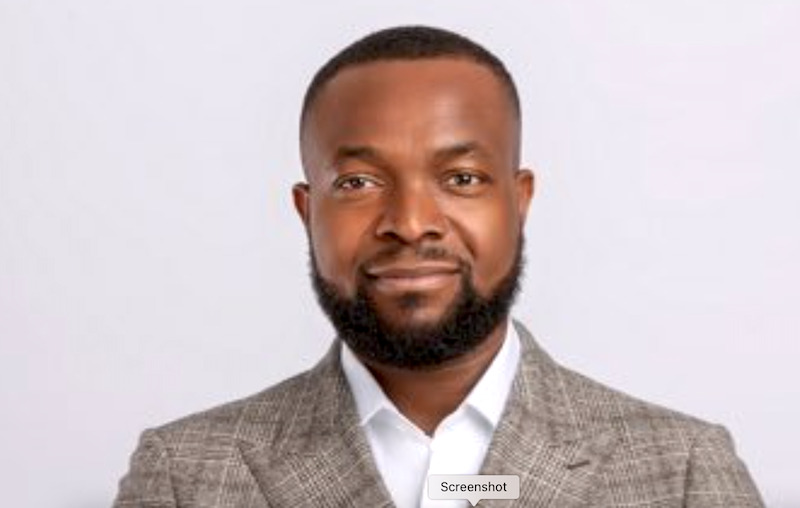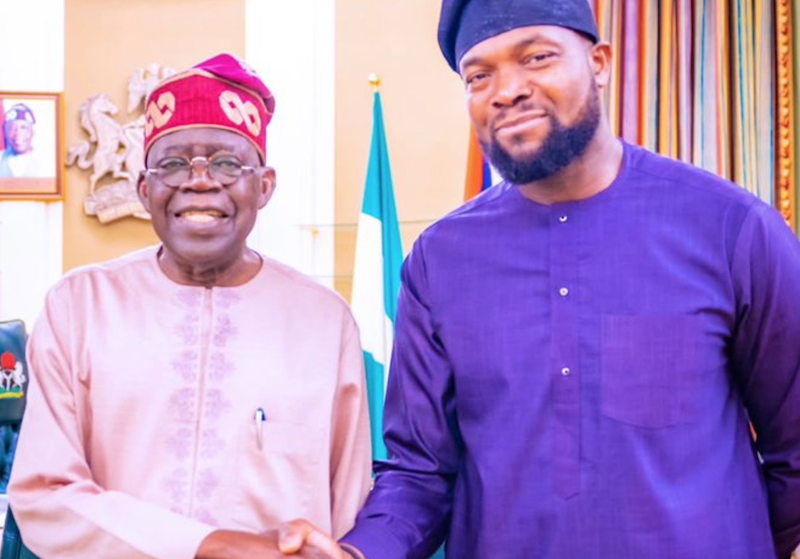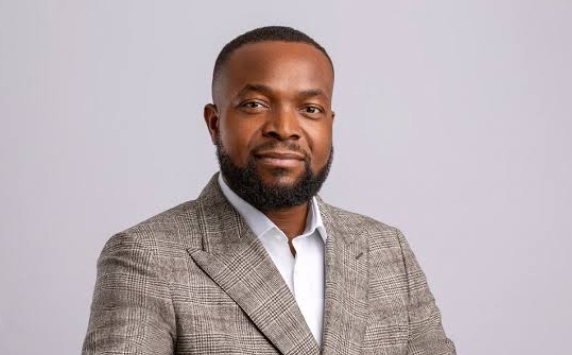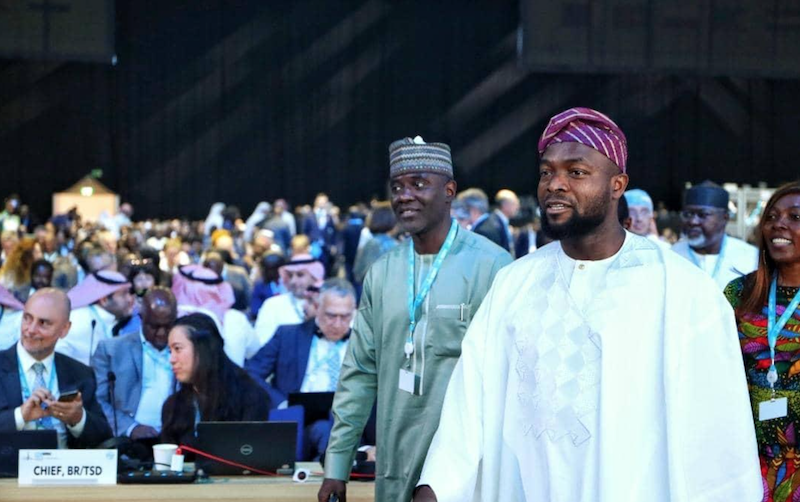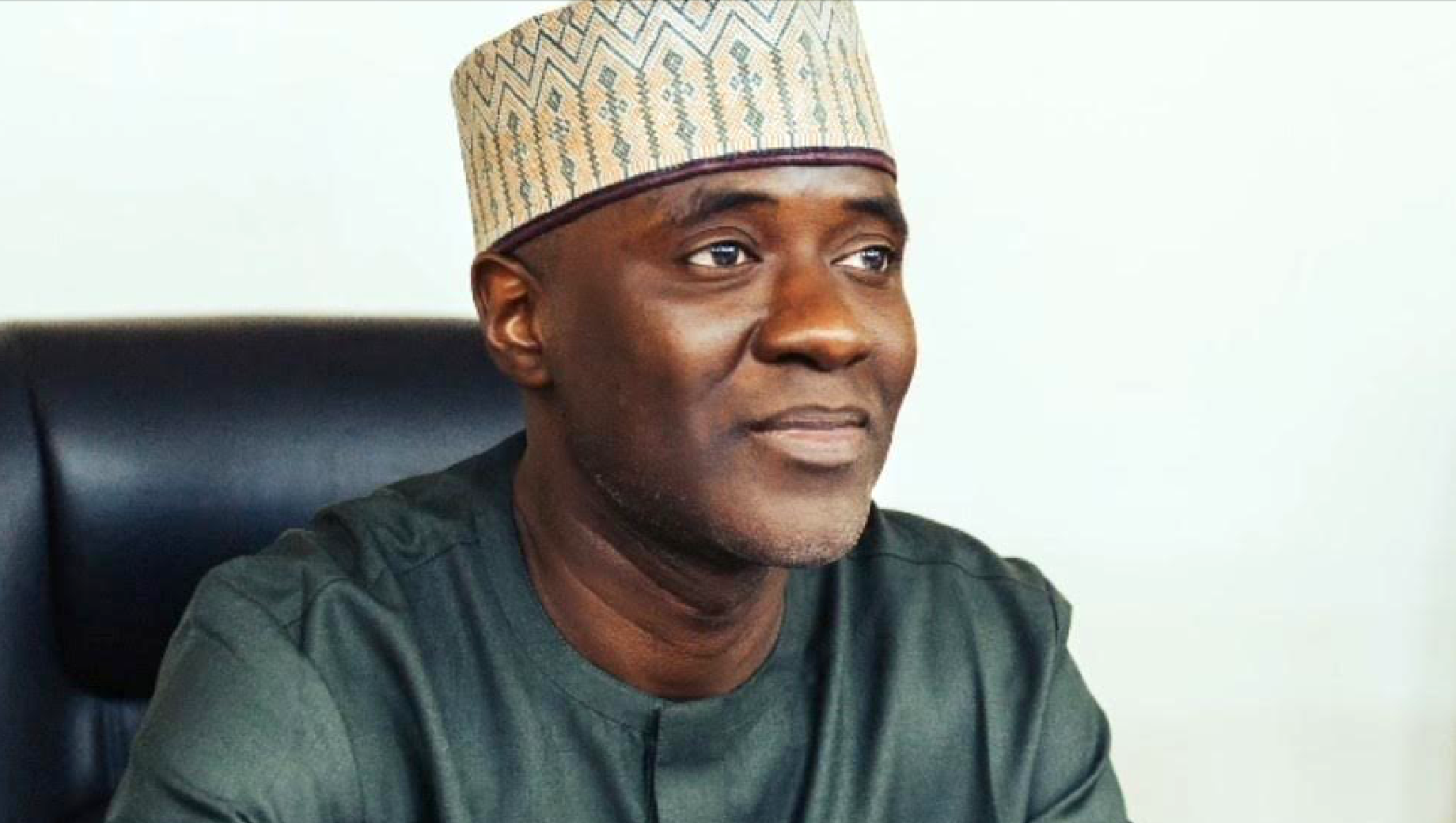The Minister of Communications, Innovation and Digital Economy, Dr Bosun Tijani, is having a great time under the present administration of President Bola Ahmed Tinubu. That is the way we see it in this part of the world. When a cabinet minister hops from place to place, sometimes flying long distances without even the opportunity to read vital memos in the office, we say the person is enjoying, even with little thought to the risk of flying.
The minister has made some movements within the short span of this government. He was at the G20 New Delhi Summit, India, in September 2023. Also in September, he was at the 78th Session of the United Nations General Assembly which President Tinubu, was attending for the first time as President. Bosun spoke on the sidelines. Last month, he was at the World Economic Forum in Davos, Switzerland.
This administration, like others before it, sees technology as a major lever to pull the economy out of its present sorry state and stamp it with redemptive accoutrement even before the global community. Bosun, who has had a glowing practice in the private sector, is leading the charge and therefore, has to attend these meetings and speak to people with homogeneous thoughts on global economy.
Particularly, he is flaunting the IT capacity of the Nigerian youthful population to change their world and be able to meet some needs in the global ICT shopping list.
On the sidelines of Davos, Bosun said: “Also we have global challenges that we are part of but there are opportunities that technology has to offer to solve those challenges and with those opportunities is the gap that exists which is the workforce for technology.
“And with the workforce in Nigeria, that 60 percent of our population is between 18 and 20 years, it means Nigeria can fill the gap. We are raising talents who can join the technical workforce that will solve some of these global problems.”
The other day, the minister said the country would need about $2bn to build a fibre ring around the nation. He said he would encourage the private sector to make the investment. This is much smaller than the $5bn that was estimated to execute the Nigerian National Broadband Plan 2020 – 2025.
The plan, which targets a coverage of 90 percent of the population and a penetration rate of 70 percent by the end of the plan’s lifetime, which is next year, may not meet expectations at all. This is no naked pessimism.
Is the minister saying something new? I am asking this question because of another question an industry source asked me: where are the deep thinkers at the Nigerian Communications Commission (NCC), the source asked. What does this have to do with the minister?
We shall try to answer some of the questions without jumbling things up. The NCC is the regulator of the telecommunications industry and a primary player in the execution of the minister’s policies. The place was well resourced with personnel who thought about tomorrow through their studies, research and data analytics. Unfortunately, the system has been undergoing a lot of delayering of staff with the last batch leaving only recently. It is knowledge exodus that will affect what happens at the regulatory agency in the days ahead.
The paucity of telecommunications services in Nigeria was well documented within the Commission. So, instead of playing only the role of the regulator, the NCC initiated a number of programmes that could assist in bringing services and knowledge to the people.
Thus was born the Digital Bridge Institute (DBI), in different locations of the country with headquarters in Abuja, Wire Nigeria (WIN), Digital Awareness Programme (DAP), Advanced Digital Appreciation Programme for Tertiary Institutions (ADAPTI), and InfraCo. The InfraCo was a different layer of thinking encouraged by the realisation that the country was too vast for one or few operators to ring with fibre. More operators have to be persuaded even with subsidy to deploy fibre optics in different zones of the country, seven zones in all, with Lagos standing as a zone because of vast telecoms demand.
These various programmes established some knowledge centres in our institutions, set up tech facilities and, in some cases, built major facilities in the case of DBI that can serve as tech incubator centres in different parts of the country. The only one that has tanked is the Infraco which has not taken off at all in spite of the laudable plans, arrangements and projections. This failure is acknowledged in the current Broadband plan.
Is the minister acting in the void or saying something new? Not at all. The NCC saw this a long time ago and decided to project itself as a strategic service rollout stimulator in the value chain.
An industry source told me last week that the minister has to build out his expectations by harvesting the low hanging fruits resident in the various parastatals under his ministry. He wants to affect the youthful population with universally requisite IT skills, encourage local and international investors to play a role and generally create a situation that leapfrogs technology to the front row in the projected national economic develoment.
The source is suggesting that the Minister should align with the NCC to do a technology audit of its various projects to determine what is available in-house and why those that have failed , failed. DBI, according to the source, provides a disturbing case. The institution has massive physical infrastructure build out all over the country. In Lagos, in Kaduna, in Adamawa, in Kano, and in Enugu among other locations, DBI has state-of-the-art facilities that are just waiting to be activated.
But what killed the DBI dream? Instead of operationalising DBI facilities, the last administration at the NCC with tacit encouragement of an overbearing minister, shifted attention to building of IT parks, and installation of WiFi in major markets and airports.
For instance in March last year, about two months to the end of the Muhammadu Buhari administration, the Federal Government approved the sum of N24.20bn for the provision of broadband internet connection in at least 20 airports, 43 schools and six marketplaces nationwide. A happy Minister of Communications and Digital Economy, Dr Isa Pantami, told a shocked populace that the bills would be picked by the NCC. The source of money for the payment is as convoluted as the contract itself. But it doesn’t smell good at all.
A source told me that the amount was much more than whatever budget that was ever set aside as subsidy to fund the InfraCos which was planned to help extend fibre to different parts of the country. But do we ever learn anything in this nation?
Good literature was done for the current Broadband Plan which observed why the previous one didn’t achieve much results . For instance, the issue of Right of Way (RoW) remains. The Federal Government has not been able to persuade states to agree to a uniform charge of N145/m. Infraco incentives defined but not yet implemented. USPF incentive structure for rural coverage is not attractive because of focus on CAPEX and OPEX. Sustainability of various initiatives by NITDA, USPF, DBI and state governments remains an issue.
Almost all the factors that upstaged the success of the former Broadband plan and even more, are at work against the current plan which expires next year. Another industry source reasoned that the minister cannot achieve much in his tech dreams without looking at the success rate of the current Broadband Plan and what he takes from there into the future.
On the way forward, there is a consensus among industry players that the minister must encourage the NCC to revisit Infraco and ensure that it works this time instead of some booby traps that destroy a vision. They also see DBI as a silver bullet to achieve the minister’s dreams. Instead of allowing a huge physical infrastructure to be lying waste, the minister should stimulate the NCC with policies that can turn DBI locations into Incubation Centres, Tech Development Centres or Science Labs that can attract or host contiguous higher institutions and even be more useful to host communities.
The options before the minister are multifarious but a hard choice is still better at the end of the day than words which could be too cheap to achieve reason or results.


